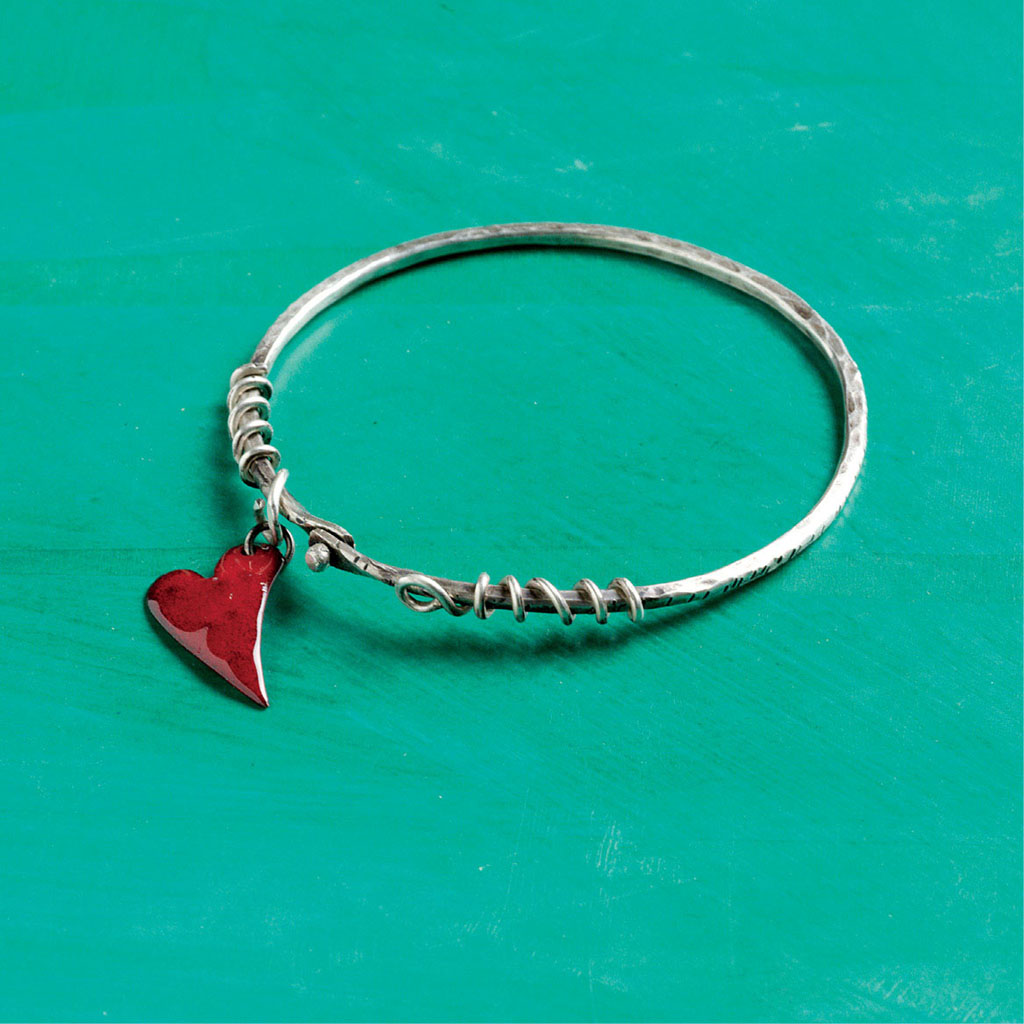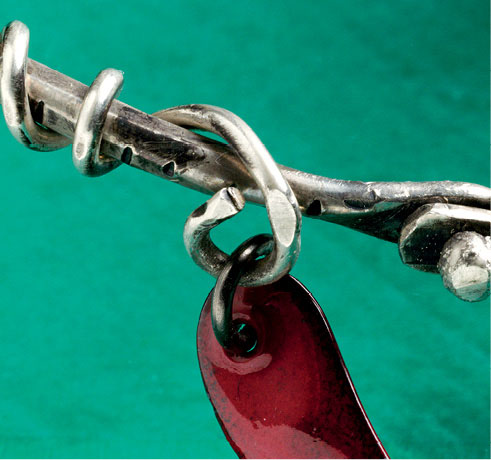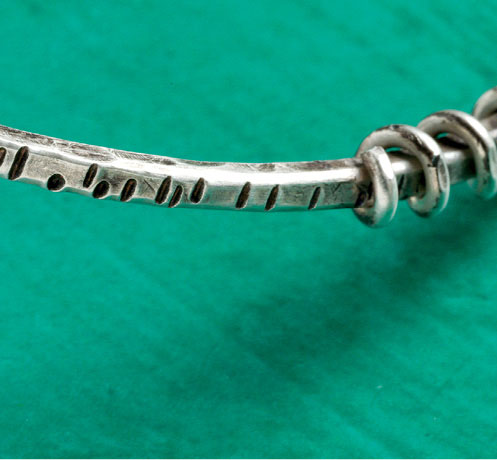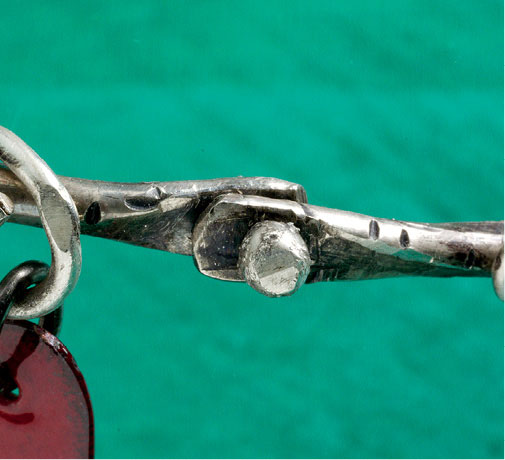

81⁄2" (21.5 cm) of 10-gauge round sterling silver wire
7" (18 cm) of 16-gauge round sterling silver wire
3⁄4" (2 cm) of 16-gauge round fine silver wire
One 4.5mm sterling silver jump ring
One 11⁄8" (2.9 cm) red enamel heart
Chasing hammer
Steel bench block
Metal file
Fine-point Sharpie marker
2-hole screw-down hole punch
Ball-peen hammer
Butane micro torch
Charcoal soldering block
Fireproof work surface (cookie sheet)
Utility pliers
Quenching bowl
Steel bracelet mandrel
Rawhide mallet
Flat-nose pliers
Letter I from an alphabet stamping set
Wire cutters
Riveting hammer
Round-nose pliers
Liver of sulfur
0000 fine steel wool
25⁄8" (6.7 cm)

1. Use a chasing hammer to flatten each end of the 10-gauge wire into a paddle shape. It needs to be flat and wide enough to accommodate a 1⁄16" (2 mm) punched hole. Smooth and round the edges with a metal file.
2. Use a Sharpie marker to place a dot on both flattened paddles in the center about 3 mm from the edge. Make a hole at each dot with the smaller 1⁄16" (2 mm) size of a 2-hole screw-down hole punch.
3. To texture the wire, use the round end of a ball-peen hammer to gently place marks in the wire. This will help form the wire into more of a square shape. Anneal, quench, and dry the wire.
4. Shape the wire around a bracelet mandrel to form a bangle shape. If needed, use a rawhide mallet to help form the proper shape. Remove the bangle from the mandrel and continue to shape the ends so that the holes align. Use flat-nose pliers to get the proper curvature in this section. If more texturing is desired, place the bangle on the mandrel and use the letter I from an alphabet stamping set to stamp horizontal lines on the outer edge.

5. Place the 3⁄4" (2 cm) piece of 16-gauge fine silver wire on a charcoal block and use a micro torch to ball up one end. To get enough heat for the 16-gauge wire to ball, hold the wire with utility pliers so it is just about touching the charcoal block. The charcoal block will reflect heat onto the wire, increasing the melting temperature. Let the wire cool. Insert the wire through the aligned holes on the bangle so that the balled end sits firmly against the outer edge. Trim the wire end so that about 1⁄16" (2 mm) of wire sticks out of the hole. Place the bangle on a steel bench block and use a riveting hammer to form a rivet (see Riveting with a Nail-head Rivet).
6. Cut two 31⁄2" (9 cm) pieces of 16-gauge sterling wire. Use round-nose pliers to form a loop on one end of the wire. Use your fingers to coil the wire around the bangle to make about 5 coils. The coiled part should start by the riveted end of the bangle. Trim any extra wire and flatten it down. Use flat-nose pliers to push down on the coils to make the wire stay in place. Repeat on the opposite side with the other 31⁄2" (9 cm) piece of wire.

7. Oxidize the bracelet in liver of sulfur; rinse and dry. Use fine steel wool to remove the excess patina and produce an antique silver finish.
8. Use a jump ring to attach the enameled heart to one of the looped ends on the coiled wire on the bangle; close the jump ring.
Silver: riogrande.com. Red enamel heart: cassiedonlen.etsy.com.